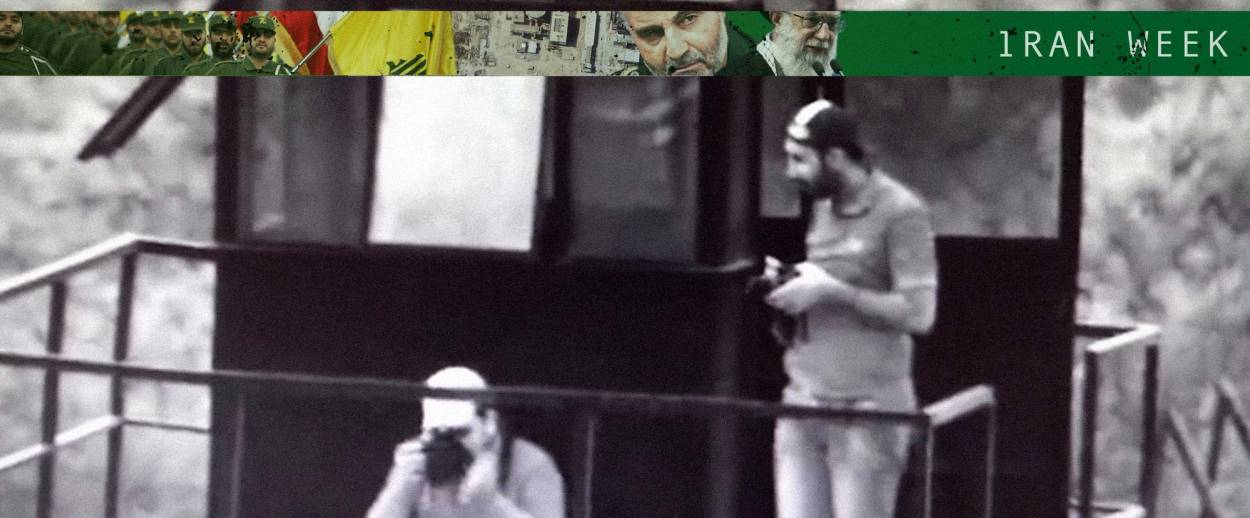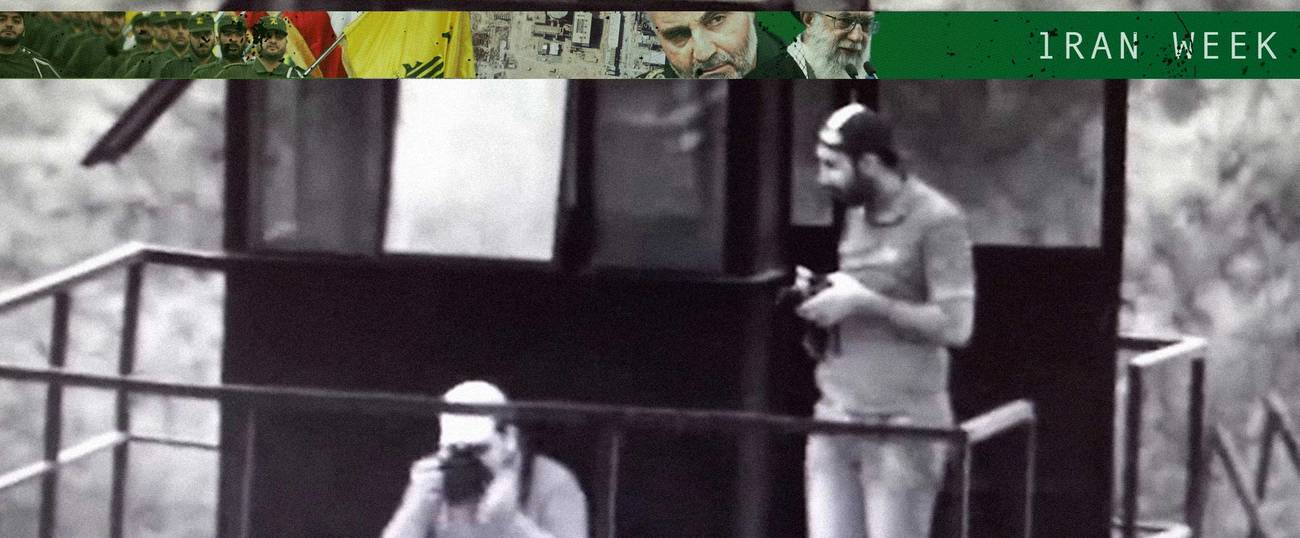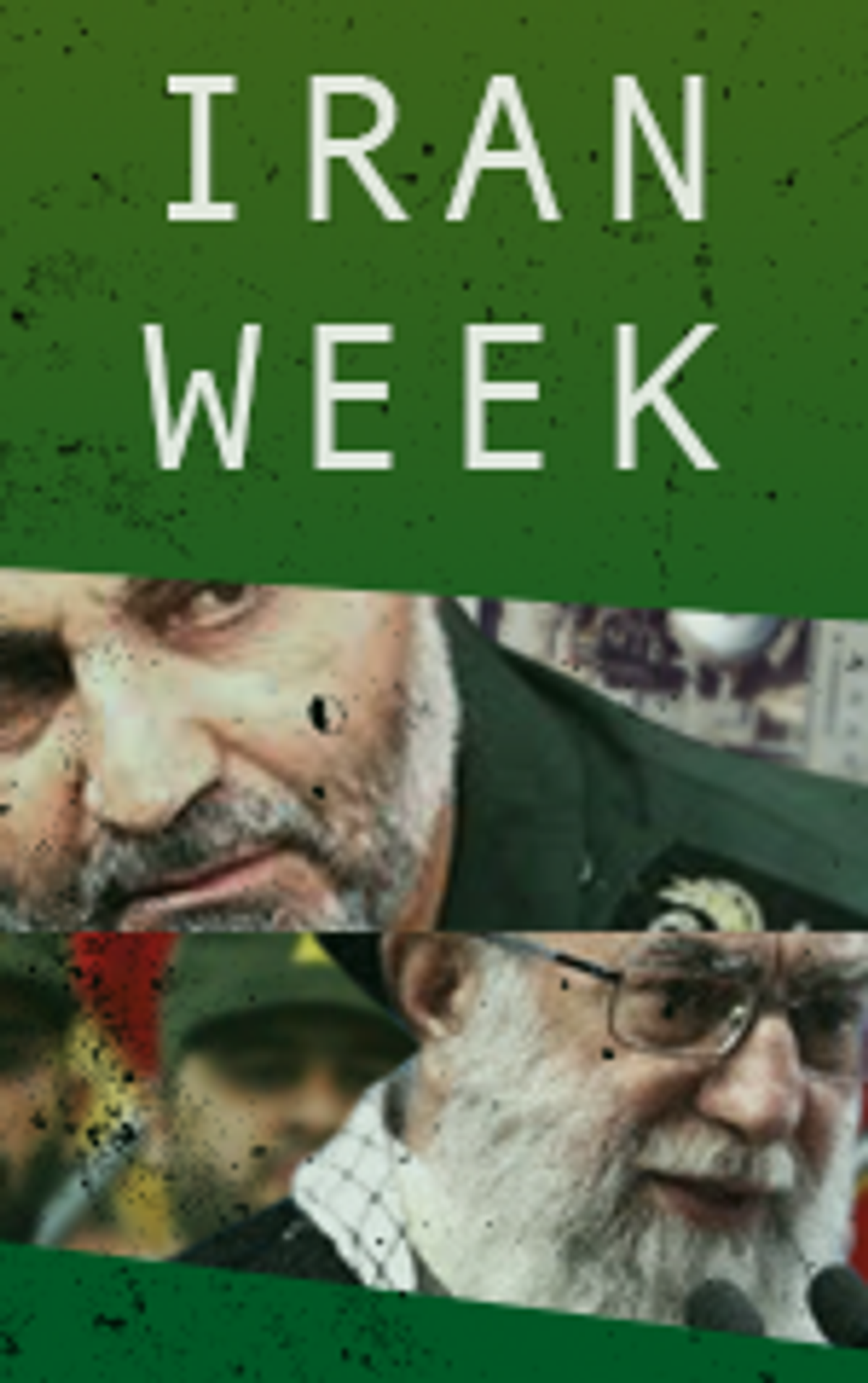Hezbollah’s Environmental Warriors
Iran Week: Are trees planted in Lebanon along the Israeli border really for ‘nature reserves’?




After the second Lebanon war in 2006, when the IDF uncovered the elaborate network of underground Hezbollah tunnels and bunkers in southern Lebanon, the Israelis dubbed these fortifications “nature reserves.” Hezbollah used the “nature reserves,” which were built in forested areas and hillsides, to launch short-range rockets on northern Israel continuously as its fighters hunkered inside, safe from aerial and artillery bombardment.
Eleven years later, the term, intended as a joke, has proved more apt than perhaps the IDF initially imagined. Last week, Israel filed a complaint with the United Nations Security Council in which it charged that Hezbollah had set up observation outposts along the border under the cover of an environmental group called Green Without Borders. Israel released photos and a video backing up its claim.
Unsurprisingly, the U.N. rejected Israel’s complaint. U.N. spokeswoman Eri Kaneko said that over the last two years, UNIFIL “has observed tree-planting activities undertaken by the NGO as is their stated objective.” But, she added, there was nothing in violation of UNSCR 1701, such as any unauthorized armed Hezbollah presence.

However, there’s more behind this seemingly innocuous environment-friendly planting of trees and the NGOs involved in the effort. In a 2010 address, Hezbollah Secretary General Hassan Nasrallah, who was shown planting a tree, urged the Lebanese to follow his example and combat the deforestation of Lebanon. The address marked the conclusion of a campaign to plant a million trees organized by Hezbollah’s construction and development arm, Jihad al-Binaa (Construction Jihad)—designated by the Treasury Department in 2007—under the sponsorship of the Hezbollah minister of agriculture at the time.
Nasrallah explained that the Lebanese should approach the matter of trees, woods, and forestation as “part of Lebanon’s national security.” “Nature provides sometimes-critical defensive characteristics,” he said. “Fighting in a desert is different than fighting in mountains and valleys. As such, when we once threatened that we would destroy five or six IDF companies should they enter our land, we spoke about the geographical nature of our land, hills, valleys, and trees.”
Hezbollah’s Jihad al-Binaa has continued this campaign, based on Nasrallah’s directive, and has done so with groups like Green Without Borders and others, and in cooperation with municipalities in the south and the western Bekaa. Hezbollah’s directorate for municipal action (al-‘amal al-baladi) is also a constant partner, liaising with the municipalities to provide the required funds. A 2013 conference organized by Hezbollah and its divisions—Jihad al-Binaa, Hezbollah’s municipal arm, the Mahdi Scouts, the Islamic Health Commission, the Iranian-funded Peace Generation Organization for Demining, and, of course, Green Without Borders—under the sponsorship of the Hezbollah minister of agriculture, was titled unambiguously “The Green Resistant South.” In line with this theme, the head of Green Without Borders declared that the initiative was so that “we remain loyal without limits to our Resistance and our natural and environmental wealth, which is our green garment and the impervious resistant fortress.” Just like you have “resistance economy” and “resistance culture,” you also have resistance environmentalism. Hezbollah as a green movement. It doesn’t only provide social services and fight imperialism, it also cares about the environment. It’s the leftist dream.
The story wouldn’t be complete without mentioning that a lot of the locations in the south and western Bekaa that were covered in the campaign were turned into and christened “nature reserves.” It’s unclear how many of these spots are or will become no-go military zones, as is the case with several areas in Lebanon under Hezbollah’s control.
Some might recall that the initial “nature reserves” were built under the nose of UNIFIL between 2000 and 2006. “We never saw them build anything,” a UNIFIL officer told a reporter in 2011. And, of course, that’s the point. UNIFIL sees nothing and hears nothing, even as Hezbollah organizes tours chaperoned by the LAF, parades armed members for photo ops, and has increased its stockpiles several times over since 2006. Rather, it insists that all is well; that “new roots of peace” are starting to take hold. By definition, that’s what UNFIL will naturally say. Otherwise, it will be called upon to do something—its job—which, of course, is an impossible fantasy.
***
Read more from Tablet’s special Iran Week.
Tony Badran is Tablet’s news editor and Levant analyst.